Story highlights
Poland's militias are expanding amid rising tensions with Russia
35,000 people have signed up and are currently in training
Poland scrapped compulsory military service in 2008. Less than a decade later, some now question the wisdom of that move.
Russia is throwing its weight around eastern Europe, stocking up its isolated Baltic exclave of Kaliningrad with far more armaments than its neighbor feels comfortable with.
“The situation is starting to resemble the situation during the Cold War,” says Polish Under Secretary of State, Ministry of Defense, Tomasz Szatkowski. “There are a number of fronts, a number of situations that could turn into proxy wars.”
Kaliningrad has a 200 kilometer border with Poland – and as the world saw in Crimea, when Russia wants to protect its vital assets, it doesn’t mind crossing borders to do so.
But Vladimir Putin’s muscle-flexing in the region has Poles in a patriotic fervor, and it’s turning into a boon for the Polish government.
Old militias on the rise
The politics of Poland preclude the country from reinstating military conscription, like neighboring Lithuania did last year. But fears over Russian aggression has thousands of young people lining up to join Poland’s historic militias.
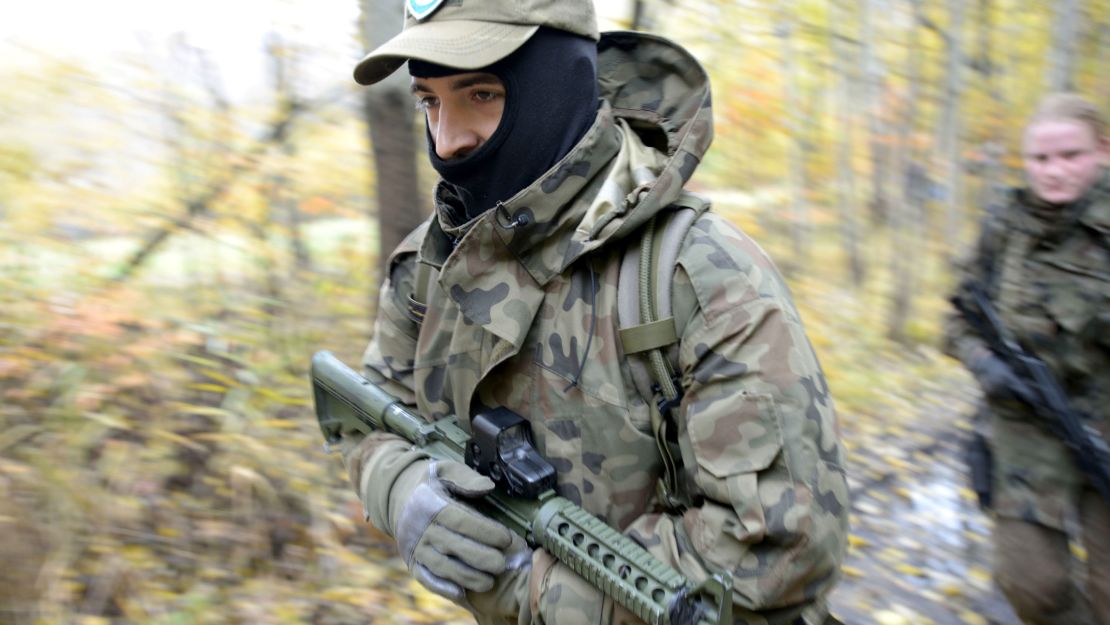
Known as the Riflemen’s Associations, some have century-old roots that predate the Polish state, when underground forces fought Russian Bolsheviks and Moscow’s communists.
To say that Poland has no desire to live under Moscow’s heel again is an understatement, and the government knows it, which is why it’s backing the resurgence of the old militias.
“It helps to have a better trained, better skilled pool of people that can be called into military service at a time of crisis,” explains Szatkowski.
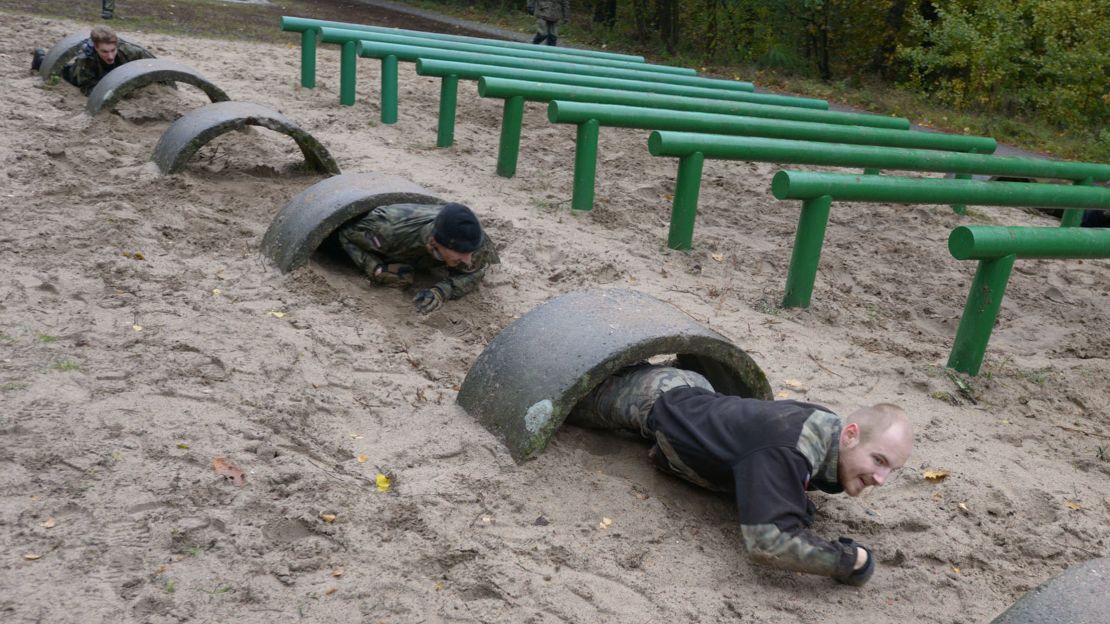
Weekend warriors
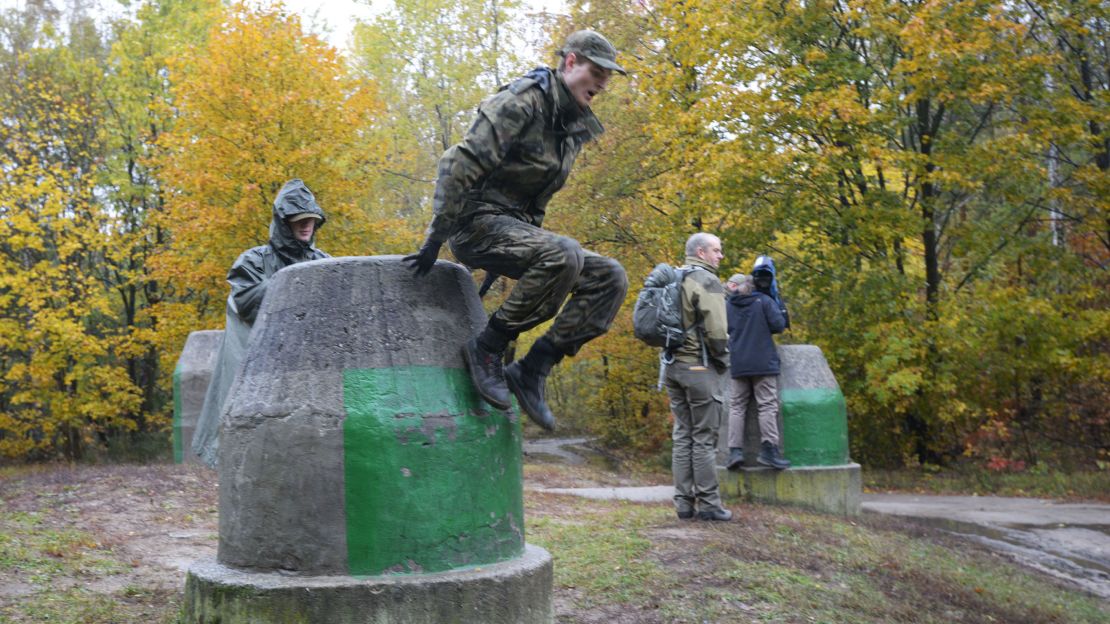
On the outskirts of Warsaw is a forest interrupted by waterways and tracks littered with abandoned military bunkers and outhouses. It’s become a weekend home away from home for local militias.
On a rainy weekend in October, new recruits mounted a full speed assault on a military-style jungle gym, complete with subterranean tunnels and terrifying jumps.
Marta Adamczewska, a 20-year-old student who one day wants to join the army, is trying out for the Riflemen’s elite Special Forces Unit.
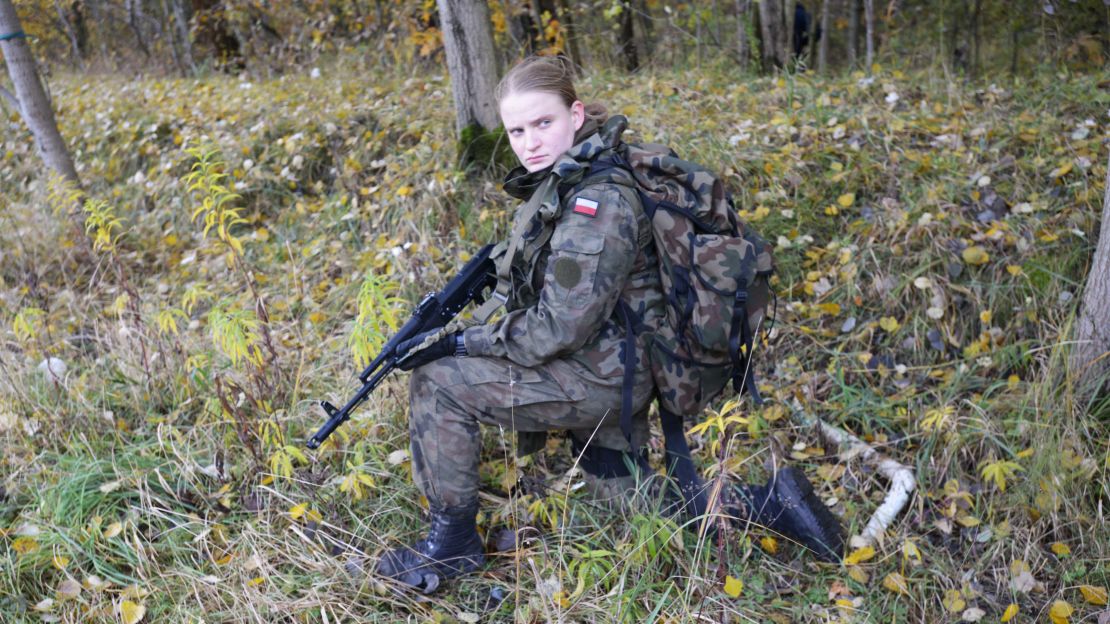
We watched as Adamczewska dragged herself through ditches of near freezing water, hauled tree trunks, and ran for miles. She answered coded quizzes, searched for explosives in pitch black dungeons, and survived a simulated attack.
“I’m tired, but generally happy and would like to do it again,” Adamczewska says. “Three quarters of our society are worried about what Russia is doing in Crimea and Ukraine, it’s not just me.”
Adamczewska’s walk may have been a little slower by the end of the session, but her grin was twice as wide. Many of the recruits we met now have a little extra to smile about – they know support from the government will boost their training and up their game.
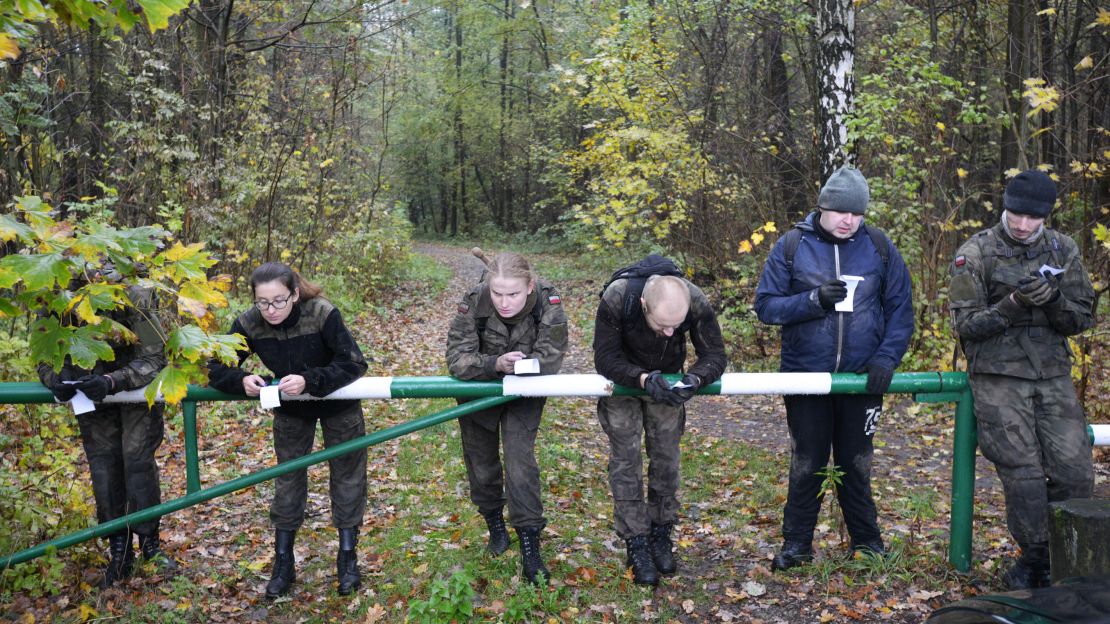
‘We’re ready for anything’
Jan Piotrowski has been in the militia seven years. He’s only 23 but, like so many in Poland, follows the tradition of boy scouts that seamlessly integrates itself into the culture of weekend warrior. He sees his future in the security business but his weekends for now are for the Riflemen, training hopefuls like Marta Adamczewska.
“More money means more training and better training, and that’s good,” says Piotrowski. “We want to be ready for anything that causes a threat to Poland.”
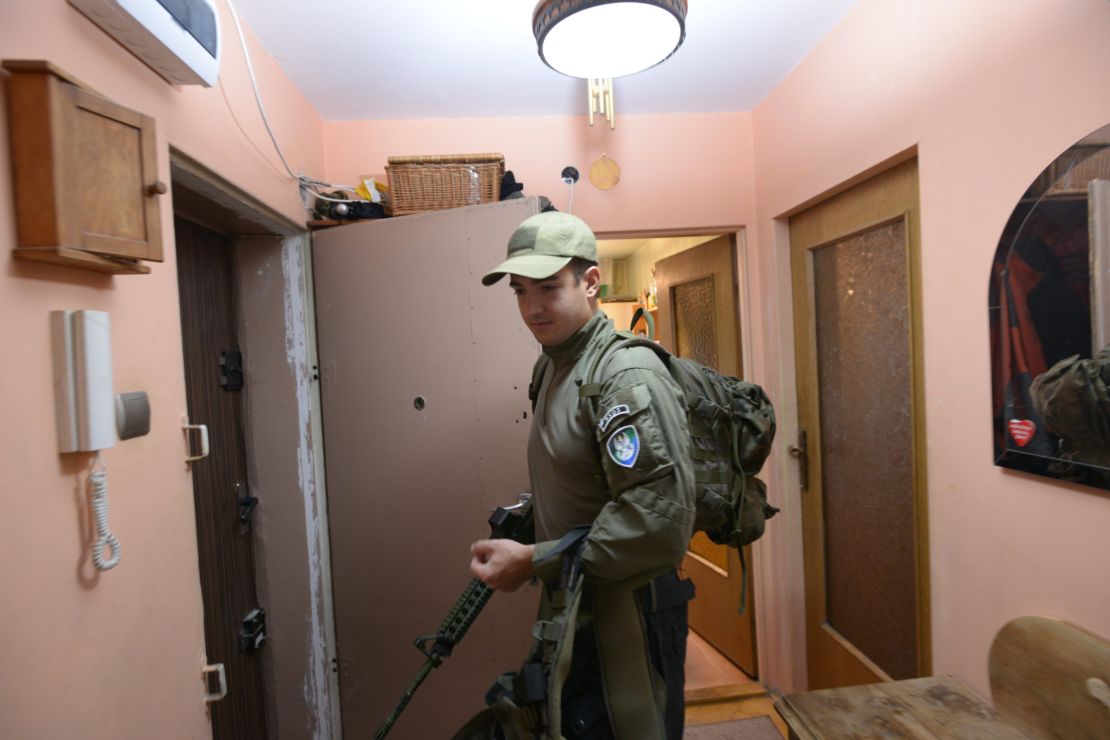
Some Poles worry that the new rightwing government is opening a back door for private militias to be used against the country’s citizens, rather than for them.
But the Riflemen say their political heritage is not up for grabs – and neither is Poland, which means a lot more cold wet weekends ahead.

